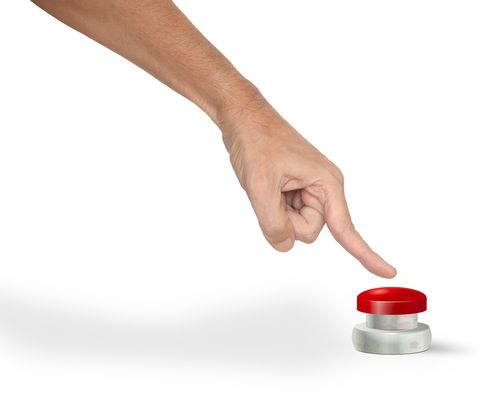An Electric Shock Is Preferable To Boredom For Most Men, Who Detest Sitting Alone And Doing Nothing

So a bunch of scientists bring you into a lab to conduct a psychology experiment and when you get there, they tell you what’s going to happen and immediately you’re disappointed, as deflated as a bicycle tire 10 minutes after hitting a nail. (You were hoping you’d get to look at naked pictures while hooked up with electrodes or try some new mind-altering drug.) Still the gig is short and sweet: You get to sit in an empty room alone for 15 minutes and, by the way, you have the option of pressing a button to give yourself a mild electric shock. Hearing about the shock, your eyebrows lift skeptically for a moment, but you say nothing and sign the consent form.
Alone in the room you’re bored in the time it takes to wonder what your friends are doing and whether this was worth missing time at the job, which you will probably have to make up at some point, probably the worst time, like on Friday when you’re ready to leave. Another five minutes pass, random thoughts and memories drift in and out of your mind, and now you find yourself staring at the button, which is red and shiny and sitting there on a small table beside your chair. "How bad a shock could it be?" you are wondering as you reach your hand toward it. For a moment you hesitate, but then your usual curiosity kicks in. YOLO, you say to yourself, and press… zzzzzztttt! Jeez, that was nothing, aren’t my 15 minutes in this stupid room done already?
According to a study designed by Timothy Wilson, a psychologist at the University of Virginia, 67 percent of men and 25 percent of women sitting alone in a room doing nothing hit the electric shock button. To anyone who is experiential by nature, does this come as a surprise? No, no, and no.
Fun or No Fun?
In a series of 11 studies, Wilson and his colleagues tried out different variations on the same theme of simply asking participants to be alone with their thoughts from six to 15 minutes. Most of the participants in the first few studies reported this "thinking period" wasn't very enjoyable and that it was hard to concentrate. Because the original few experiments involved college students, the research team brought in people from a broader selection of backgrounds and an age range from 18 to 77. What did they discover?
Overall, participants “consistently demonstrated that they would rather have something to do than to have nothing other than their thoughts for even a fairly brief period of time," Wilson said. "That was surprising — that even older people did not show any particular fondness for being alone thinking.”
Next, the research team allowed participants to conduct the experiment in their own homes, where, once again, they were supposed to be alone with their thoughts. "We found that about a third admitted that they had 'cheated' at home by engaging in some activity, such as listening to music or using a cell phone, or leaving their chair," Wilson said.
The team is still trying to understand the exact reasons why people find the task difficult. "The mind is designed to engage with the world," he said. "Even when we are by ourselves, our focus usually is on the outside world.” Interestingly, he did not offer the usual knee-jerk reaction to his results. Instead of attributing this near-universal dislike of idleness to the prevalence of electronic devices or the proverbial fast pace of modern society, he believes the very opposite may be true — the devices, toys, games, and general noise might actually be all about us just wanting something to do.
Source: Wilson TD, Reinhard DA, Westgate EC, et al. Just think: The challenges of the disengaged mind. Science. 2014.
Published by Medicaldaily.com



























